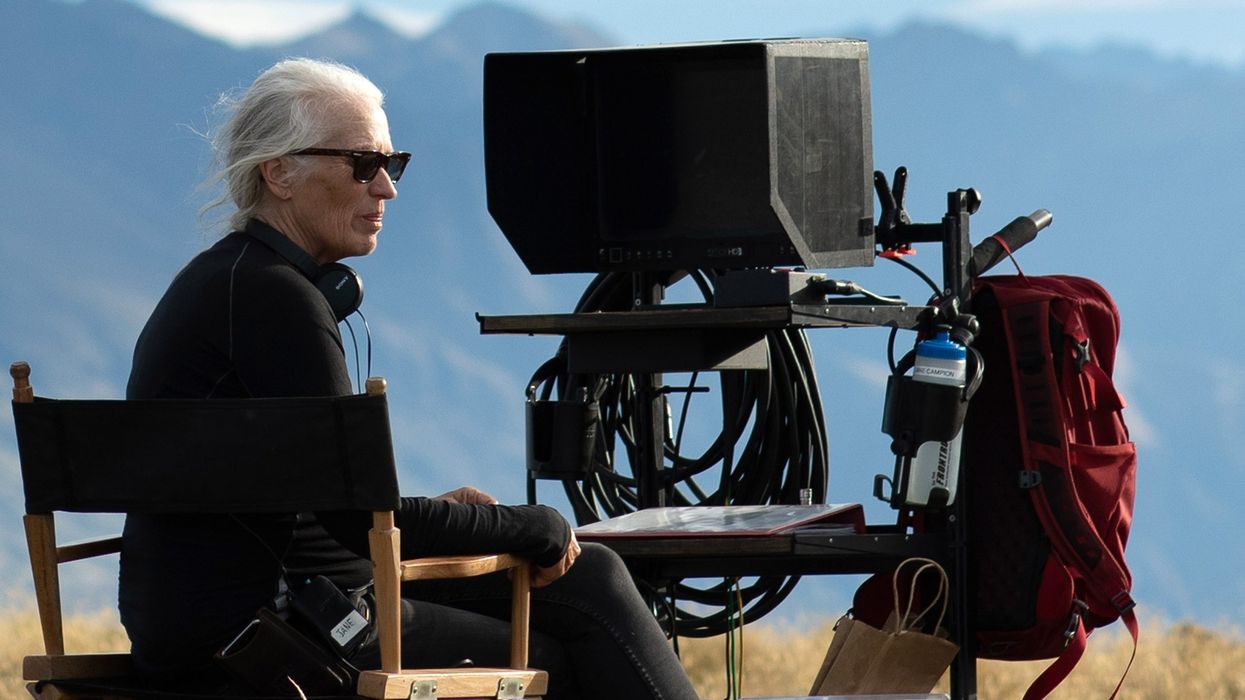10 Expert-Level Filmmaking Tips from Jane Campion
Jane Campion has seen it all, and found success at every level.

In terms of careers that seem to have been embraced everywhere, Jane Campion takes the cake. She's a New Zealand director, screenwriter, and producer whose movies have soared. She became the first woman to be nominated twice for the Academy Award for Best Director.
She was also the first female filmmaker to receive the Palme d'Or for The Piano (1993) which also won her the Academy Award for Best Original Screenplay. At the 78th Venice International Film Festival, she won the Silver Lion award for directing The Power of the Dog (2021).
There are so many lessons we can learn from her wisdom and from her films.
Check out this video from Outstanding Screenplays, and let's talk after the jump.
10 Expert-Level Filmmaking Tips from Jane Campion
1. You will always encounter a proportion of both love and fear for a project you want to take on. What you need to do is overcome the fear just enough so that the inspiration and love for it is slightly stronger than the fear.
Fear will hold you back. As I type this, I know it's held me back. Aside from making great things, I think all filmmakers probably need therapy, but also maybe the ability to be introspective. Confront fear and translate that into inspiration.
2. At the start of the film, plant a seed in the audience’s mind and steer their attention toward something that will trigger a memory for them later on.
You know I don't believe there are any rules in writing, but I do think plant and payoff is the most important part of storytelling. If you can set up certain aspects at the beginning, you can help your characters' arc, and hang a light on things for the audience to connect to later.
3. Dig deep to try and discover if the story or characters apply to your own life experience in some way and use what you learned from those experiences.
Writing and directing comes from a personal place. You don't have to have been in the same situation as the characters, but try to find where they are in terms of emotional states.
Have you felt scared, excited, turned on, happy, etc? How did you react then? Add some naturalism.
4. While you’re making the film, give it all the love, attention, and intelligence it needs, but once it’s out in the world, let it be.
We've seen many directors mess with their work over time. I think the best thing you can do is find a finished version and let your art stand. There's always the temptation to change or alter things. Let it hang, see how it matures.
Then make something new. You have a lot to offer.
5. Tell your friends to be brutal with their feedback. You have to pull your muscles to hear that bad feedback. Because feedback is brutal. But feedback is also help, and it’s the only way to learn.
Man, it can be so hard to hear the real notes from people. So hard.
But I promise you, when your story gets better, when your writing goes further, when your films premiere somewhere, it will all be worth it. Listen. Take it in. Let it make you better.
6. Have someone do psyche work with you. Let them help you facilitate a discussion between yourself and your character.
I have found this to be really helpful. Work with a friend or a mentor and talk out every aspect of a character. You can even use an actor friend to play one of them. That's really fun because you can ask them questions and truly round out your story and the way to sink into these people.
7. Shun the world you don't like and create your own.
Life is very hard. Hollywood is full of rejection. Writing and directing can take you far away from your troubles and give you the opportunity to examine things you never would get to see otherwise. Time travel. Fall in love. Go somewhere special.
8. Write, in disguise, about yourself and the people around you by changing the details.
We all know a few characters. Put them in your work. Make them authentic. Combine people you know or just keep digging into them. Change names and details, but don't fear using friends and family as a jumping-off point for something more.
9. Make your audience think back to how they missed something in your film that’s been in front of their noses the whole time.
This is the thing about planting early, you can surprise the audience later. Really find people interested in how things are panning off by rewarding them. If you add layers to your storytelling, this will really show up.
10. If your mind goes blank on set, just remember all you need to do is put the camera up, put some people in front of it, and trust that you’ve done enough preparation that you know what you’re doing.
Intuition is your best friend. It can carry you through a long career. The truth is, you're always going to be hustling for work. But when you get lost or down, follow your gut.
Set up a camera and shoot something. Find your inspiration.
Source: Outstanding Screenplays













